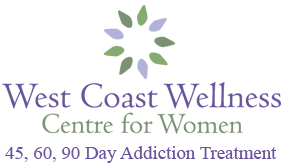Are Alcohol Withdrawal Symptoms Dangerous?
I am 42 years old on Sept. 12th and I have been in recovery for 12 years. It’s been a long time since i’ve experienced alcohol withdrawal symptoms but being on the other side of the fence, working with those suffering from alcohol abuse, it is hard to watch.
Are alcohol withdrawal symptoms dangerous? Well, let’s take a look.
Today with social media we can follow the lives of people we went to high school with, usually through their Instagram pictures, their lives seem happy and prosperous.
Well, four of my high school friends, who seemed happy on Facebook died over the last three months, and another friend’s; Dad.
They all died from alcohol abuse. That’s FIVE people I know personally who have died from alcohol withdrawal symptoms in the last three months. That’s more than the 2,500 clients I have spoken with, who suffer from alcohol abuse, in the last year.
This is what has compelled me to an article on the alcohol withdrawal symptoms that every good friend should know about since it’s our most socially accepted, minimized drug that kills.
When we see a friend or a family member going through this we usually either act like a deer in the headlights, frozen, unsure what to do, or we turn a blind eye.
The trend today is Fentanyl and prescription addiction and as we see, in the media, we get more stories about narcotics abuse like GHB, cocaine, meth, or the new one; flakka.
Because alcohol is so socially accepted, most people don’t put the same emphasis on it as those other substances.
But first, for those who are visiting this article in search of the alcohol withdrawal symptoms that every good friend should know about, here you go.
What are Alcohol Withdrawal Symptoms?
- Confusion
- Hand Shaking (Delirium Tremens)
- No Appetite
- High Blood Pressure
- Insomnia
- Night Terrors
- Alcohol Withdrawal Sweating
- Extreme Irritability
- Nasea or vomitting
- Headache
If you are reading this article seeking help with trying to spot a loved one’s symptoms then look for redness of face, no appetite, profuse sweating, and hands shaking. These are all easy to spot in order to draw some conclusions.
Alcohol Withdrawal Symptoms Timeline
Stage One of Alcohol Withdrawal
Stage one is tremors. These tremors can begin within 12 hours after the person has stopped drinking alcohol. Other symptoms of the first stage of withdrawal include headache, nausea, vomiting, rapid heartbeat, heavy sweating, insomnia and anxiety.
Stage Two
Stage two is hallucinations. Hallucinations begin within the 12 to 24 hours range. In stage two, the person may hear or see things that are not there.. Patients in stage two often continue to experience symptoms from stage one and those symptoms may worsen during this time.
Stage Three
Stage three can leads to Seizures on the alcohol withdrawal timeline. This stage typically begins after 48 hours alcohol stoppage. Seizure usually occur from the dehydration that alcohol causes. Rather than a single seizure, this stage usually sees the person undergo several generalized seizures.
Stage Four
Stage four is known as delirium tremens or DT’s. This phase can begin from three to four days after a person stops drinking and as long as two weeks afterward. Symptoms of stage-four withdrawal include tremors, inattention, confusion, hallucination, fever, rapid heartbeat, sweating and pupil dilation. If the person is not receiving medical care by now, this is when it become a serious health risk. The patient’s life is in danger.
Are Alcohol Withdrawal Symptoms Serious?
Based on what you’ve read so far, what do you think?
Alcohol withdrawal symptoms are no joke. What we see on the outside is not an accurate reflection of the abdominal armageddon that is going on, on the inside. If you spot these symptoms, often what’s happening on the inside is liver damage, which leads to jaundice which can lead to liver failure and gastrointestinal bleeding which leads to death.
But often, we laugh it off as just a bad hangover. A bad hangover is like a rite of passage these days. They are badges of honour and respect for being able to endure some horrible pain after a night of indulgence and shenanigans.
After speaking with friends and family who were close with two of those friends who had passed away, they both, independently of one another claimed they had been saying for months leading up to their deaths that they didn’t have long to live, but we all turn a blind eye, hoping it will get better on it’s own and justify it somehow in our head because it’s only alcohol.
Now that you know the alcohol withdrawal symptoms that every good friend should know about, there’s something you can do about it.
What can I do about it?
If you or your loved one require the management of alcohol withdrawal symptoms, you can’t ignore it.
- Call your local detox centre. If you live in B.C.you may call 604-477-0765
- If you live outside of B.C. we suggest you contact the Canadian Information & Resource Line here: 1-877-254-3348
- If you require immediate medical detox services there are urgent care clinics that you can access, however be prepared for fee for service.
- Lastly, if it’s an emergency, please take yourself or your loved one into the Hospital Emergency. Now Emergency is not set up for withdrawal management but at least they can minimize alcohol withdrawal symptoms by providing an IV, stabilize dehydration, and give you some anti-anxiety medication to reduce symptoms and some Clonodin to reduce rising blood pressure. Don’t expect to stay long though. Typically they will do their best to stabilize vitals, which gives you some extra time to find a detox bed.
Once detox is complete you should contact either a drug rehab for men or a drug rehab for women. We are strong believers in recovering in a non co-ed environment. Detox ins just the first step. It helps stabilize the body but in order to stop the need to kill the pain one must discover what pain they’re trying to kill and if it’s not physical then it’s mental emotional. An addiction treatment program can help discover what’s driving that need, which is the only way to find long term sobriety.
Don’t laugh this off, don’t minimize it, don’t allow it to continue. If you or a loved one is experiencing alcohol withdrawal symptoms, it’s time to do something about it and the good news is, you don’t have to be a statistic. You don’t have to die.
There is help, there is hope, and there is a way to recover but alcohol withdrawal symptoms witnessed or experienced require immediate medical attention not the turning of a blind eye. Remember, just because someone looks happy and okay in social media doesn’t mean they don’t really need help. Don’t let social media fool you. Alcohol kills.
Written by:
Keith Roman
@SobermanRichman
The Alcohol Withdrawal Symptoms that Every Good Friend Should Know About ©



Leave A Comment
You must be logged in to post a comment.